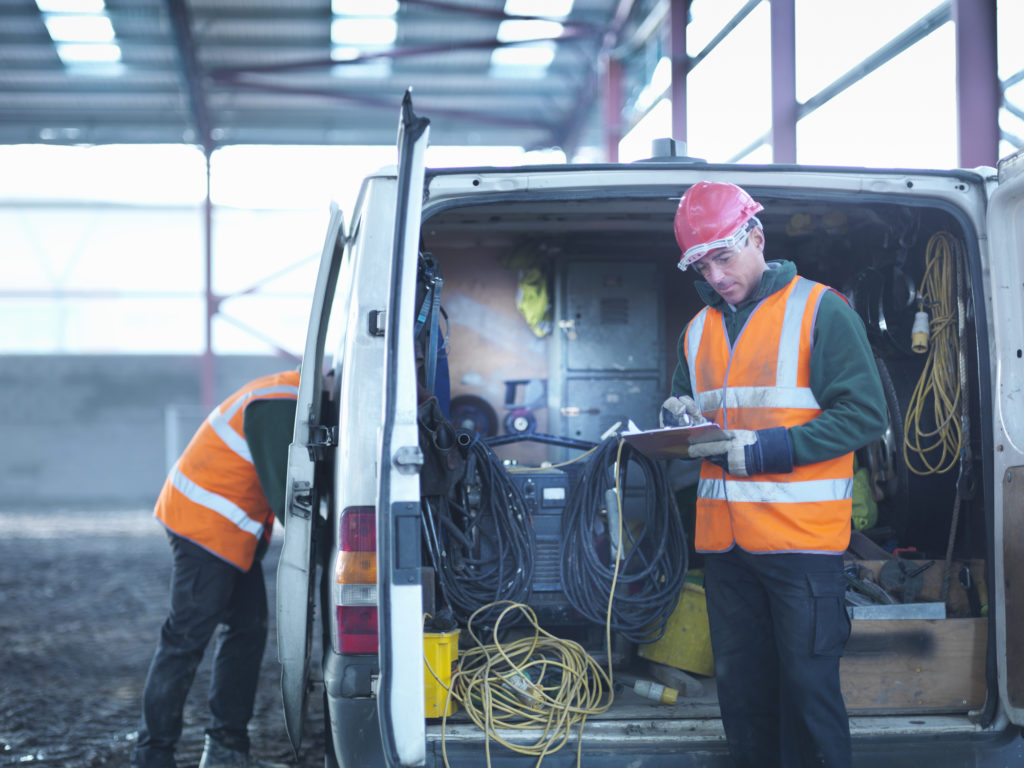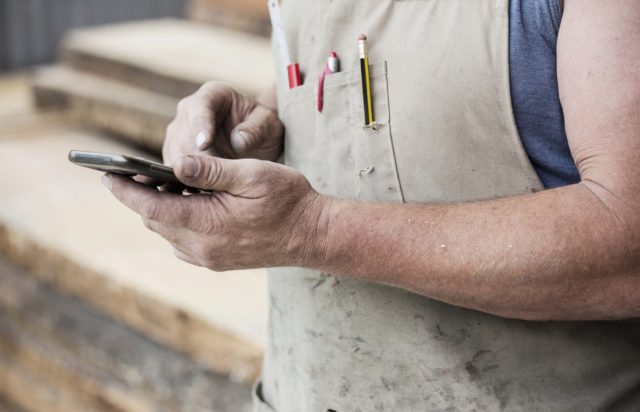A recent investigation conducted by an insurance comparison site in the UK discovered that bricklayers’ vans carry double the amount of bacteria as a toilet door handle, and it’s not much better for other tradies.
Given the current predicament surrounding COVID-19 and the sheer devastation a virus can wreak on ourselves and our livelihoods, there’s never been a more important time to be vigilant against the spread of germs and bacteria.
A tradie’s work vehicle often acts as a second home, with many drivers either spending much of their time on the road or taking breaks behind the wheel. However, a new investigation has revealed just how dirty a tradesperson’s van can get.
Confused.com partnered with the School of Biological Sciences at the University of Essex in the UK to investigate the different types of germs living in six trade vans belonging to a builder, a carpenter, a dog groomer, an electrician, a bricklayer and a plumber.*
Surprising results.
The results showed that vans can harbour a wide variety of germs, some of which can be a serious threat to the health of their drivers, in extreme cases.
In particular, the van belonging to the brickie was found to contain the most pathogens – a type of microorganism that can cause disease. Here pathogen levels were more than double those usually found on toilet door handles.
The most prominent germs found in this van are known to cause skin infections and acne, with traces of bacteria relating to respiratory infections.
Vans ranked in order of dirtiness, including the tested toilet door handle:
- Bricklayer
- Builder
- Electrician
- Dog groomer
- Carpenter
- Plumber
- Toilet door handle
Yep, that order is correct.
RELATED: Spotlight On: 5 signs you need new safety specs.

Bacteria found in tradie vehicles.
The investigation found that most ‘touch’ points in all vans tested were riddled with pathogens. And the handbrake was the most germ-ridden area of all – something drivers must use at least a couple of times in one journey, which may put them at risk of catching some infections or illnesses.
The most common bacteria found on the handbrake was Staphylococcus aureus. This is often found in the upper respiratory tract or on the skin and may cause a Staph infection.
While most Staph infections can be treated with antibiotics, the bacteria can occasionally cause more serious infections like toxic shock syndrome or impetigo (a contagious skin infection that can cause sores and blisters). Worryingly, some strains of this type of pathogen can also exhibit antimicrobial resistance, specifically MRSA – a strain of bacteria that’s resistant to several types of antibiotics.
Staphylococcus aureus was just one of many germs lurking in the tested vans. In fact, pathogens which could lead to pneumonia and endocarditis were also present on some touch points – both of which could lead to serious illness in extreme cases.
RELATED: Spotlight On: Top 5 safety boots.
Keep it clean.
Knowing when a surface is covered in germs is impossible to see by eye, but commonsense says cleaning your vehicle regularly can virtually eliminate the chances of bacteria thriving.
With that in mind, you should start by giving your car a deep clean. From there, a weekly cleaning routine should become the norm.
- Empty everything out. Mats, seat covers, glove box, door pockets, ute tray … everything.
- Shake the floor mats, brush them down and give them a scrub with a carpet cleaner or warm soapy water. Let them dry on the clothesline.
- Brush as much dust, dirt and crumbs off the seats, use a soft brush to clear dust from any tricky areas, including the dashboard, vents, steering wheel, gear stick etc.
- Get stuck in with a hand-held vacuum and really get into those hard to reach places.
- Hit all ‘hard surfaces’ with an interior cleaner and a cloth.
- You’ll want to shampoo the seats with upholstery cleaner or carpet cleaner, depending on the material.
- Let everything dry before giving everything a spray with a disinfectant such as Glen 20 or Dettol.
- Once you’re happy with the job, let the car air out before spraying air freshener and admiring your hard work.
Of course, we don’t all have the time to dedicate half a day to deep cleaning, so you could always take your vehicle to a car wash and pay them to do the job for you.
With social distancing and washing your hands thoroughly now becoming part of the norm, it’s a good time to ensure your vehicle’s cleanliness is regularly attended to also.
*We endeavour to provide accurate material for Australian businesses consistent with Australian health guidelines; however, this material is for reference only and is not designed to be, nor should it be regarded as professional advice.

